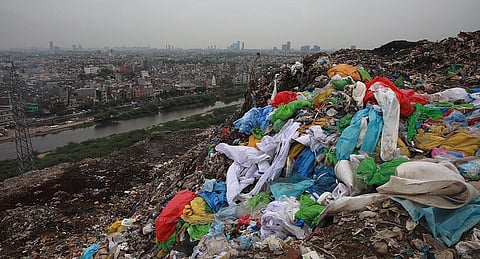

NEW DELHI: In what is expected to become a humongous challenge, certain states with heavy coronavirus load could soon run out of capacity to treat Covid-19 biomedical waste.
Any sudden spike in Covid waste generation in those states could make matters critical for their disposal, according to a report by the Central Pollution Control Board (CPCB).
The report on generation of Covid-19 biomedical waste (BMW) and disposal submitted to the National Green Tribunal (NGT) says about 101 metric ton per day of Covid-19 related biomedical waste is generated in the country.
This is in addition to the normal biomedical waste generation of about 609 MT per day.
“Available capacity for incineration of Covid-19 biomedical waste in the country is about 840 metric tons against the total generation of about 710 MT per day (101 + 609). It is estimated that 55 per cent of cumulative incinerator capacity in the country is being utilised,” it said.
However, Bihar, Delhi, Odisha, Rajasthan, Tamil Nadu, Tripura and Uttarakhand have utilised over 70 per cent of incinerator capacity and have been asked to look for alternative incinerators and disposal options.
Tripura, Rajasthan, Uttarakhand, Nagaland, Maharashtra, Lakshadweep, J&K, Himachal, Goa, Assam and Arunachal Pradesh have gone for deep burial pits for waste disposal.
Maharashtra, which has the highest Covid-19 load, generates the highest (17.494 MT) biomedical waste per day, followed by Gujarat (11.693 MT) and Delhi (11.114 MT).
Look for standby facilities
States like TN that are short of capacity may identify standby facilities such as common hazardous waste incinerators and industrial captive incinerators, the report suggests
195
common biomedical waste treatment facilities are providing services of collection, transportation and disposal of Covid-19 waste from hospitals, isolation wards
Segregation to enhance capacity
Go for deep burial pits as the last option. Proper segregation of waste will also increase the disposal capacity of incinerators, the report suggested, saying it is not happening as of now